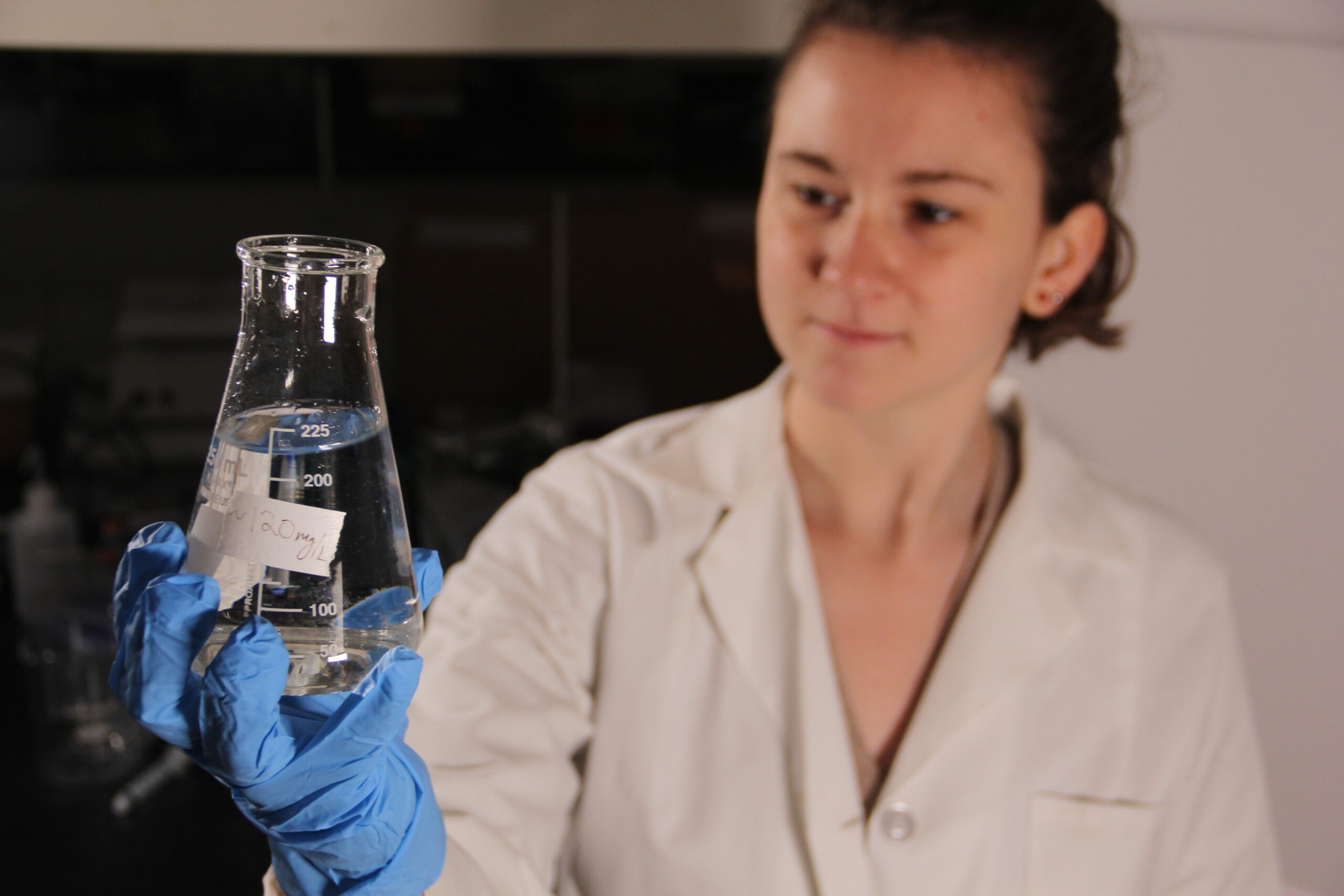Engaging Tomorrow’s Water Scholars
CEE PhD student Kim Bourne educates high school students on water scarcity

Covering the complexities of water scarcity in a 45-minute presentation is a tall order, but CEE PhD student Kim Bourne delivered. Last week, 200 students at Terry Sanford High School in Fayetteville, NC heard her keynote address on the topic at a symposium focusing on global water access issues.
The annual symposium is hosted by the Global Studies program at Terry Sanford, and adopts a different theme each year. The event is meant to give students an early experience of college-level topics and prepare them to participate in discussion and debate around complex current events.
Bourne covered three drivers of water scarcity—quality, quantity and economics—in her presentation, and cited some of the agricultural and chemical factors that affect water quality in the Fayetteville region. Bourne also discussed the roles that climate change and infrastructure play in global water access.
“I was surprised at how willing the students were to ask questions after the presentation,” said Bourne. “Like, ‘Why isn’t desalination economical?’ I loved being able to interact with them, answer some of those questions, and see that they were taking away real understanding of critical issues.”
After Bourne’s presentation on water scarcity, the students heard from a non-governmental organization focused on bringing wells to regions without water infrastructure. Deborah Vajner, director of Terry Sanford’s global studies program, said that the students were able to apply what they had learned about water scarcity from Bourne’s presentation to think critically about the solutions they saw as lasting and sustainable.
Bourne, whose PhD research in the lab of Mark Borsuk focuses on statistical modeling to inform policy decisions, found that preparing for the keynote taught her some lessons as well—specifically, it refreshed how she communicates her science to a non-technical audience. “It was a really good experience to go back to the basics and reflect on the bigger picture, and what my own work contributes,” she said.
